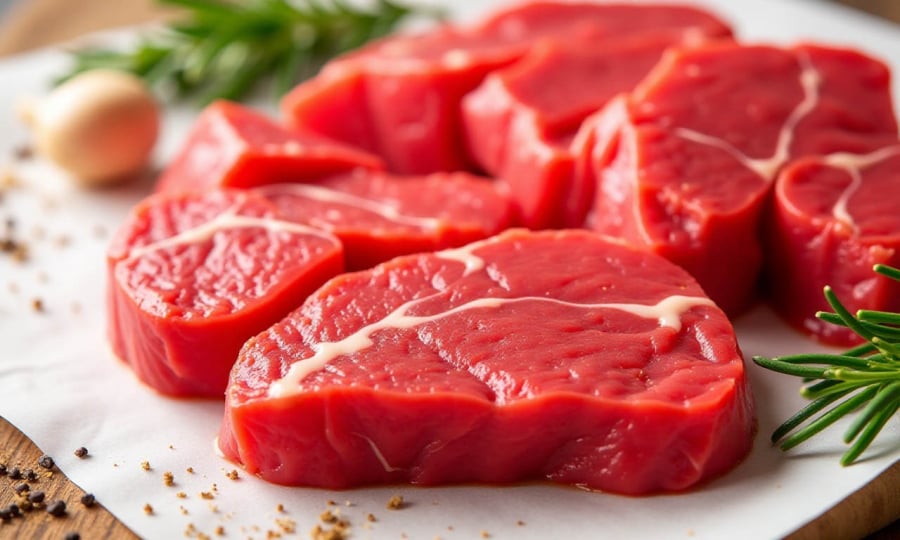Some foods don’t go well with pork and should be noted to ensure good health. Pork is a popular ingredient in Vietnamese cuisine, offering a delicious and nutritious option. However, not all foods pair well with pork, and some combinations can hinder nutrient absorption or lead to toxin buildup in the body.
1. Soybeans: A Pork No-No
Soybeans are a bean to avoid with pork as they contain high levels of plant protein and phytic acid, which can interfere with the absorption of essential minerals like calcium, iron, and zinc from other foods. Combining soybeans and pork in the same meal may reduce the nutritional value of both, leading to a feeling of fullness and indigestion, especially when consumed in large quantities. For those with sensitive digestion, this pairing may result in discomfort and digestive issues.
2. Water Buffalo and Beef: A Pork Contrast
In traditional medicine, pork is considered cooling, while water buffalo and beef are heating. This contrasting combination can cause discomfort and bloating after eating. Moreover, the unique protein structure of water buffalo and beef differs from pork, adding digestive stress when combined. Medical records also indicate that this pairing may create favorable conditions for parasite development, such as flatworms, in the body.

Avoid mixing pork with water buffalo or beef.
3. Dream Leaves: A Pork Conundrum
Despite their detoxifying and digestive benefits, dream leaves contain compounds that can cause protein precipitation in pork, reducing digestive efficiency and nutrient absorption. Especially when paired with undercooked pork, this combination may increase the risk of long-term toxin buildup and food poisoning. Those with stomach ailments should steer clear of this pairing to safeguard their health.
4. Animal Liver: A Pork Overload
Animal liver, rich in vitamins A and B12 and iron, can lead to nutritional excess when paired with pork, which is high in fat. This combination may result in an unappealing, greasy sensation, especially with strongly flavored livers like lamb or goat. Furthermore, when digestion is already challenged by the “heating” nature of pork, liver absorption becomes difficult, potentially causing loss of appetite, nausea, or bloating. Consumers should exercise caution when mixing these foods to maintain digestive wellness.
5. Coriander: A Pork Pitfall
Coriander, with its warm and slightly spicy character, is often used to neutralize strong flavors in dishes like fish or lamb. However, when paired with pork, coriander can induce a “heating” sensation in the stomach and contribute to bloating. According to traditional medicine, the combination of “heating” pork and “warming” coriander can disrupt the body’s yin and yang balance, impairing digestion with regular or prolonged consumption.
Additionally, certain at-risk groups should limit or avoid excessive pork consumption, especially organ meats, to mitigate health risks. For instance, individuals with gout should be cautious due to pork’s high purine content, which can elevate uric acid levels. Those with high cholesterol or weight issues need to be mindful of pork’s saturated fat content, which can impact lipid levels. Similarly, people with kidney stones ought to refrain from pork as it may increase oxalate buildup, exacerbating their condition.
Avoiding these pork pitfalls—soybeans, water buffalo/beef, dream leaves, animal liver, and coriander—is crucial for digestive health and preventing potential complications. As a staple in Vietnamese cuisine, pork offers nutritional benefits when consumed appropriately. Consumers should adopt a balanced diet, carefully consider food combinations, and consult nutrition experts, especially if they have pre-existing health conditions. Start paying attention today for optimal long-term health.
































